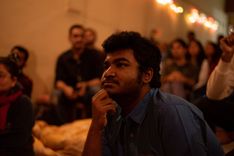For smooth Ad free experience
How a series of regime changes led to Hindustani music taking different recourses, and how some individuals brought those recourses together in their bid to establish uniform systems.
Story of Hindustani Classical Music
The Mughal empire had begun to slowly decline and disintegrate right after the death of Aurangzeb, the sixth and last great Mughal ruler. Smaller principalities during this period began carving out their kingdoms, and these became new centres for the patronage of the arts. Particularly famous among these new regional kingdoms was the principality of Awadh. By the middle of the 19th century, Awadh under the rule of its last nawab, Wajid Ali Shah, became a new centre for the development of arts and music. Key among these was the dance form of Kathak and a signing style known as Thumri. Thumris today are categorized as a lighter, semi-classical genre of Hindustani music.
But Awadh’s reputation – as that of numerous other principalities and regional kingdoms – as a centre for the arts and culture was short-lived, as the East India Company began to wrest control of various territories across the subcontinent. By 1858, following a months-long rebellion, the British crown had assumed direct control over the Indian subcontinent, announcing India as a colony of the British Empire. During this period, the development of music and the arts eventually went into decline. By the end of the 19th century and the beginning of the twentieth century, however, some interesting developments not only revived Hindustani classical music but also took it in new, somewhat democratic directions.
The first of these was helmed by a gentleman by the name of Vishnu Digambar Paluskar. Born in 1872, Paluskar was born in Kurundwad in the then-Bombay Presidency. His father was a kirtan singer, and Paluskar too showed talent and interest towards music. His talent was identified by the king of Miraj – a princely state in present-day Maharashtra – who put him under the tutelage of Balakrishnabuwa Ichalkaranjikar. Ichalkaranjikar had learned music under the Gwalior gharana and then brought it to Maharashtra. Paluskar trained under him till 1896 when some irreconcilable differences started growing between him and his teacher. After leaving Ichalkaranjikar, Paluskar began an extensive tour of Northern India, deciding to understand the differences and nuances in the training of each gharana and region. His tour culminated in 1901 when he established the Gandharva Mahavidyala in Lahore.
Paluskar’s Gandharva Mahavidyalaya was a revolutionary musical institute, as it brought Hindustani classical music out from the confines of gharanas. Gharanas were closely guarded and highly gatekept institutions, where only a select few would have the opportunity to learn music. Paluskar, with his institute, democratized access to the option of learning classical music for everyone. Now, everyone who wanted to learn music could learn it following a composite and comprehensive curriculum prepared through interaction with people from across the span of northern India.
While Paluskar institutionalised and democratised ordinary people’s access to music, another gentleman from Maharashtra, Vishnu Narayan Bhatkhande, theorised and systematised several aspects of Hindustani classical music. Born in 1860 in Bombay, Bhatkhande began learning the sitar at the age of fifteen and eventually developed a deep interest in music theory. However, music remained a largely leisurely interest for him till 1903, when his daughter died. Earlier, in 1900, his wife had died too. The deaths of his wife and daughter led him to abandon his professional law practice, and travel extensively to understand music and music theory in greater detail.
Bhatkhande’s travels culminated in him devising a new standardized notation system for Hindustani classical music, coming up with a classificatory system that put every raga into one of ten thaats, defined as sort of a super-group of ragas, and an extensive commentary on the properties of every raga. Bhatkhande published his work under the title of Hindustani Sangit Paddhati, through multiple volumes. His books are today treated as the starting point for any student of Hindustani Classical Music. In 1926, ten years before his death, he prepared the course material for a music college in Lucknow that would eventually get renamed Bhatkhande Musical Institute. In 2023, the institute was recognized as a state university by the Uttar Pradesh Government.
Around the same time as Paluskar and Bhatkhande went on to institutionalise and systematise Hindustani classical music, a young multi-instrumentalist from Bengal had arrived as a court musician in the princely state of Maihar in present-day Madhya Pradesh. Allauddin Khan had originally begun as a vocal student, learning under the guidance of Gopal Krishna Bhattacharya for 12 years. In 1899, after the death of Bhattacharya, Khan decided to turn to instrumentalist music, picking up not only instruments used in Hindustani Classical Music but also Western and folk instruments. Eventually, he applied for a job in Maihar, where he soon established a school that attracted numerous students, some of them going on to remarkable feats.
Khan’s Maihar gharana, as it is now called, has given the country a large number of stellar classical performers, across different instruments. Annapurna Devi, Ravi Shankar, and Ali Akbar Khan are just some of the notable students Khan had throughout his life. Khan died in 1972, having lived a long and fulfilling life of almost 110 years.

You might be interested in reading more from
